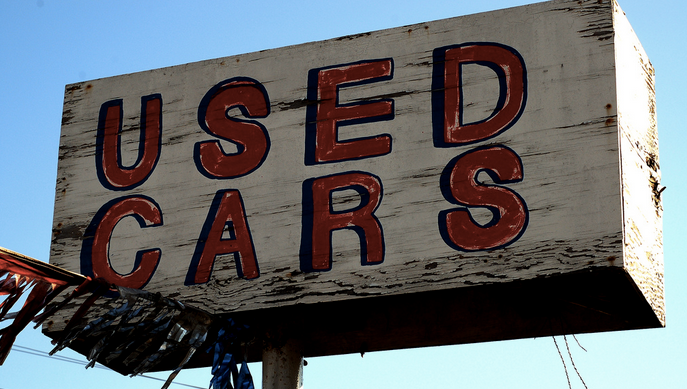New Policy Means AutoNation Won’t Sell Vehicles With Open Safety Recalls

(smcgee)
Although there is no specific federal law prohibiting used car dealers to sell recalled vehicles, nearly a year ago AutoNation – one of the nation’s largest pre-owned vehicle dealers – suspended the sale of cars with potentially deadly Takata airbag defects. Now, the company plans to take things a bit further, announcing it will no longer sell any vehicle that has an open safety recall.
AutoNation announced on Tuesday that each of its 293 franchises across the country will cease the sale, leasing or wholesale of any new or used vehicle with a safety recall.
The company says it has taken the “explicit position that it will not have any role whatsoever in these [recalled] vehicles being on the road.”
The affected vehicles will be identified, physically pulled from inventory and “Not For Sale” tags and key tags will be placed on them until adequate replacement parts are available.
The dealer also pledges that it won’t simply rid itself of the affected vehicles through wholesaling.
While the new stance will likely result in a loss of some revenue from sales and inventory space, AutoNation maintains that “customers’ protection is worth the investment in the process.”
“There’s no way to expect that customers would or should know of every safety recall on every vehicle they might purchase, so we will ensure that our vehicles have all recalls completed,” Mike Jackson, Chairman, CEO and President of AutoNation, said in a statement. “We make it our responsibility as a retailer to identify those vehicles and remove them from the market until their safety issues have been addressed.”
Despite the policy, AutoNation says it will continue to accept recalled vehicles as trade-ins from consumers. However, those cars will then be put on hold until fixes are available.
AutoNation’s move to keep recalled vehicles off the roadways comes almost a year after the company took steps to ensure that vehicles equipped with potentially deadly Takata airbags were no longer being sold by its dealers.
That defect, which has now been linked to eight deaths and hundred of injuries, culminated with nearly 30 million vehicles recalled earlier this year.
Consumers who have purchased a used car recently, or who may be thinking of purchasing one, should first check the National Highway Traffic Safety Adminstration’s latest recall look-up tool to determine if the vehicle has been recalled and fixed.
The search tool, which launched last August, requires consumers to input the vehicle’s 17-digit VIN, which can usually be found in the left corner where the dashboard meets the windshield or on insurance and registration documents. Results will then appear if the consumer has an open recall on their vehicle, and if there are none, owners will see “No Open Recalls.”
The database will only provide information on the vehicle’s safety status and won’t publish personal information or track who checked the recall status of the vehicle, officials with NHTSA say.
While AutoNation has vowed to stop selling the recalled vehicles, other used car dealers have tussled with NHTSA and consumer safety groups over the same issue in the past.
Just last month, the Connecticut Public Interest Research Group released a report that examined the inventory and sales records at two CarMax dealerships in the state, and found that many of the vehicles listed for sale have unaddressed recalls.
CarMax is currently the nation’s largest used vehicle seller.
In all, the report found that 74 of the 566 vehicles for sale at the two dealerships during the month of July were currently under recall campaigns.
Sen. Richard Blumenthal, of Connecticut, who has sponsored several bills that would ensure used vehicle recalls are addressed before being sold, said that the ConnPIRG report is “chilling.”
“Bottom line: CarMax is playing a deadly game of ‘used car recall roulette’ with consumer lives,” he said.
Want more consumer news? Visit our parent organization, Consumer Reports, for the latest on scams, recalls, and other consumer issues.

